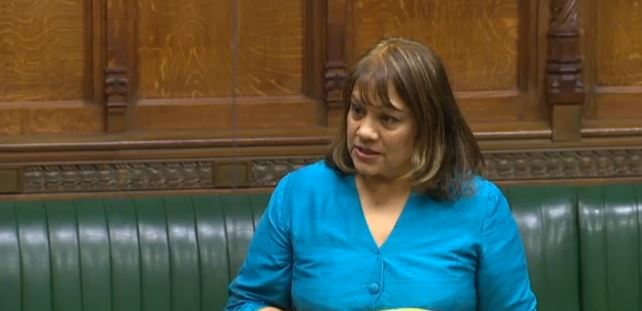- 25/10/2015
- Posted by: Valerie Vaz MP
- Category: News

On Thursday 22 October 2015, I was granted an Adjournment Debate in the House of Commons on “Human Rights, Democracy and Elections in Burma”.
I applied for this debate because the human rights situation in Burma has been deteriorating ahead of the elections which are due to take place on 8 November 2015. These will be the first since a quasi-civilian government was introduced in 2011. The position now is that in the current quasi-civilian Government, 25% are military are appointed and are not taking part in the elections. There has been no constitutional change to allow everyone of Burmese descent to take part in the elections and be eligible to be selected as President.
Amnesty International has said that there are 91 political prisoners but the figure could be higher. Burma Campaign UK says the figure has risen to 157 with 1,500 activists and peaceful protesters awaiting trial – some on charges linked to previous protests. People in Burma are saying that the authorities are targeting activists and journalists by taking them off the streets instead of allowing their voice to be heard. There is the case of Philip Blackwood, now an Amnesty International Prisoner of conscience and two Burmese colleagues Tun Thurein and Htut Ko Ko Lwin, who were given two and a half years hard labour in March 2015 for ‘insulting Buddhism’.
140,000 Rohyinga people in Rakhine state have fled their homes and live in temporary camps and are therefore disenfranchised. They were not counted in the recent controversial census. They have also had their “white cards” removed so they cannot vote, even though they have lived in Rakhine state over a century. And out of 6,200 candidates only 11 are Muslim.
There have already been complaints under election law. Thant Zin Tun, is standing for the NLD, has made a complaint against His opponent Zaw Weit, a central committee member of USDP. The complaint alleges that Zaw Weit delivered defamatory pamphlets. The pamphlets were handed out at events hosted by Ma Ba Tha members who warn the electorate that a vote for the NLD would leave Buddhism vulnerable, pointing out that the NLD opposed a controversial set of laws promulgated by Ma Ba Tha restricting interfaith marriage, birth-rates, polygamy and religious conversion. ‘If you vote for the party based only on the fact that the leader is the daughter of General Aung San, the country, race and religion will be under unimaginable harm.’ None of these have been investigated and there are other similar cases. But it’s no wonder because the Chair of the Electoral Commission is a member of the USDP.
I asked the Minister whether he recognizes Burma as a country that is upholding the rule of law and one where the elections are free and fair, whether he could raise the issue of child soldiers with the Burmese Government, whether the office of the UN as a monitoring presence has been established and what steps he will take if the Army overturn a result they don’t like. I was encouraged by the Minister’s responses but I was concerned about some points including his admission that he had not personally raised the case of Mr Blackwood because he holds joint British and New Zealand citizenship and travelled on a New Zealand passport.
We urge Burma to step out from behind the faded divisive politics of the past. I know the whole House wants to let the Burmese people know that we support them on their journey to peace, justice and prosperity. I hope they grasp this opportunity.
The full text of my speech is available to view on the Official Report here.

